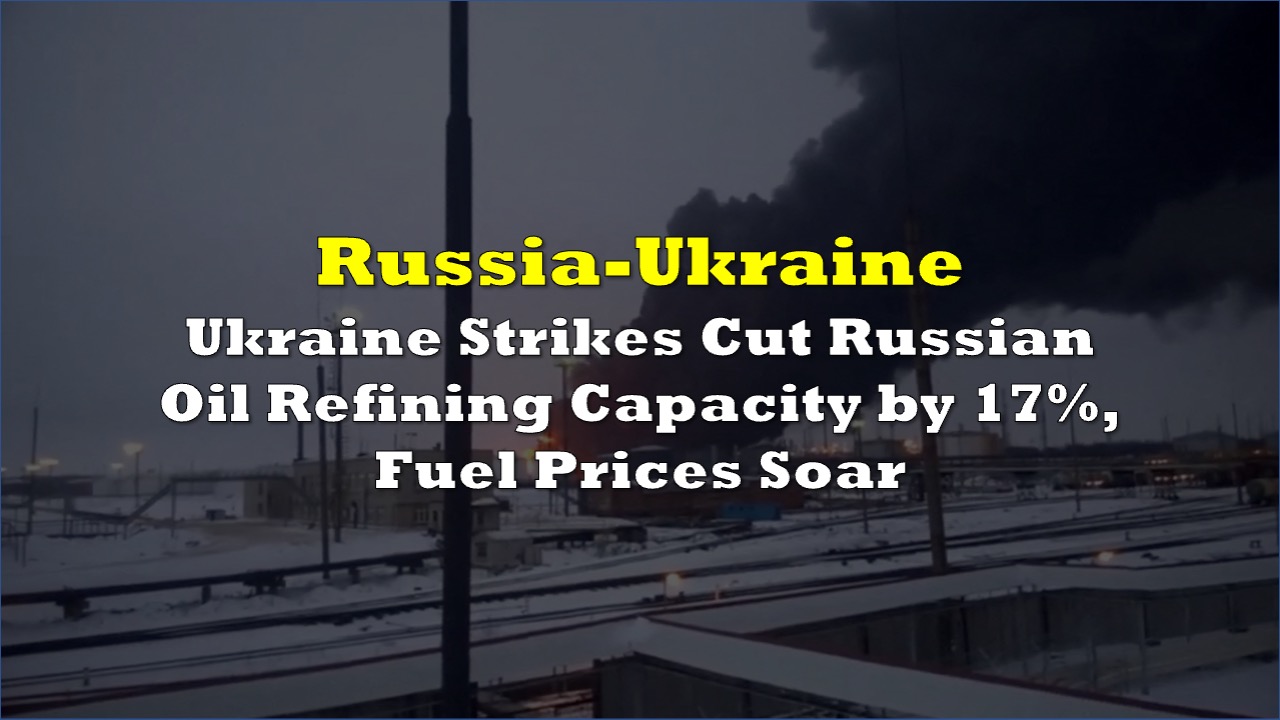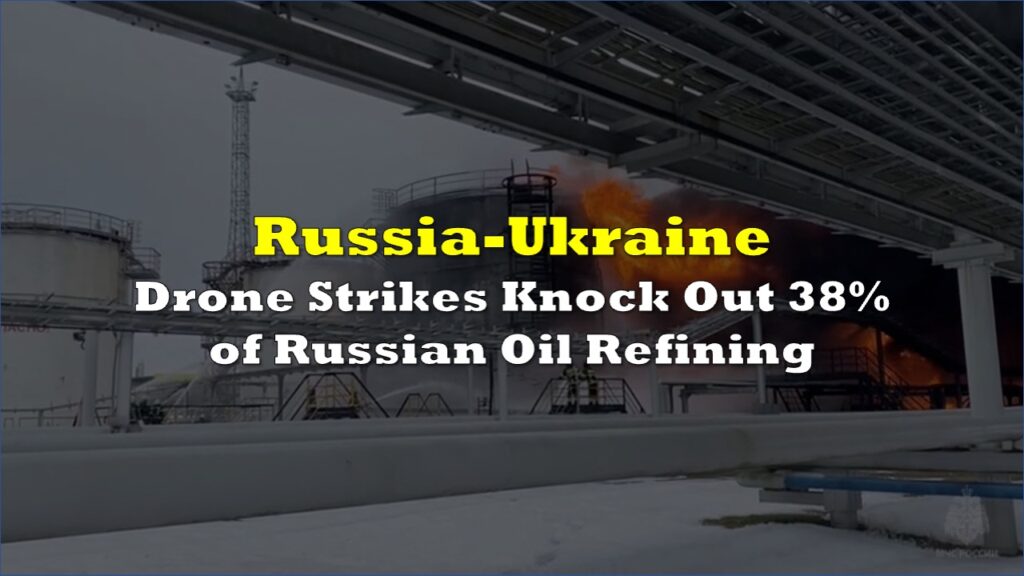Ukrainian drone strikes have knocked out 17% of Russia’s oil refining capacity, equivalent to 1.1 million barrels per day, as Kyiv intensifies its campaign against Moscow’s energy infrastructure, according to Reuters calculations and industry sources.
The attacks on at least 10 major Russian refineries have created fuel shortages across Russia and forced gasoline prices to record highs, dealing a significant blow to the country’s war economy.
Official Russian source, refinery capacity down 24%, which means its worse https://t.co/MvKIw7nwZP
— Malcontent News (@MalcontentmentT) September 9, 2025
Wholesale prices for AI-92 gasoline have surged 38% since January, while premium AI-95 fuel has jumped nearly 49%, reaching historic highs of over 80,000 rubles ($1,000) per ton on Monday, according to St. Petersburg International Mercantile Exchange data.
Read: Major Russian Refineries Halt Operations After Ukrainian Strikes
Among the facilities hit are some of Russia’s largest refineries, including Rosneft‘s Ryazan plant — the company’s biggest facility — and the Novokuybyshevsk refinery. Repairs are expected to take about a month, sources familiar with the matter told Reuters.
The Volgograd refinery, southern Russia’s largest with a capacity of 14.8 million tons annually, suspended operations after repeated drone attacks. The Saratov and Samara refineries have also been knocked offline.
Russia has extended its gasoline export ban and introduced emergency measures, including fuel rationing in some regions. Long queues have formed at gas stations, with some areas implementing coupon systems.
“Russia trades oil and gas through this terminal with the help of a ‘shadow fleet,'” a Ukrainian Security Service source said regarding strikes on energy infrastructure. “Drone sanctions from the SBU reduce the inflow of foreign currency that Russia needs to wage war.”
The attacks coincide with peak seasonal demand from tourists and farmers in Russia. Ukraine’s military estimates the long-range strikes have cost Russia around $74.1 billion, or 4.11% of its projected GDP for 2025.
With refining capacity curtailed, state oil giant Rosneft has been forced to increase crude exports through western ports to 2 million barrels per day in August, up from a planned 1.77 million barrels, industry sources said.
Energy Minister Sergei Tsivilyov has previously said that Western sanctions are exacerbating delays in returning refineries to service, potentially extending refinery downtime.
Information for this story was found via the sources and companies mentioned. The author has no securities or affiliations related to the organizations discussed. Not a recommendation to buy or sell. Always do additional research and consult a professional before purchasing a security. The author holds no licenses.









